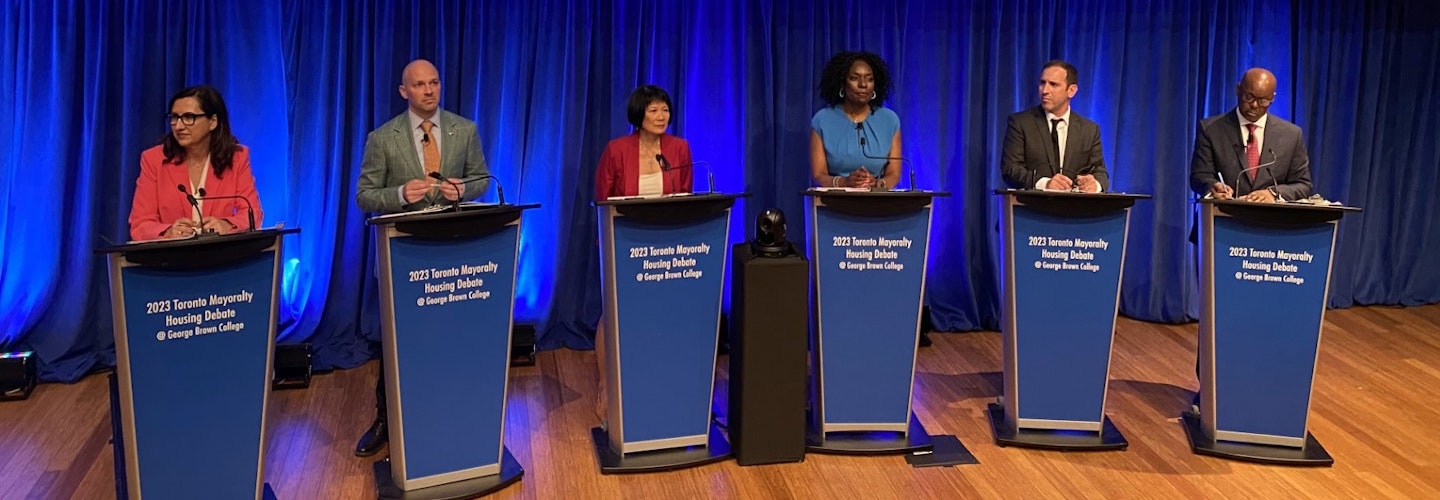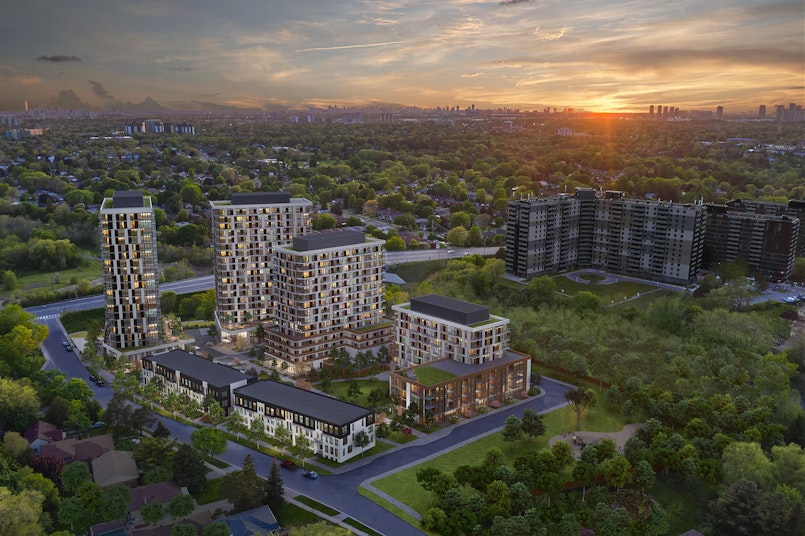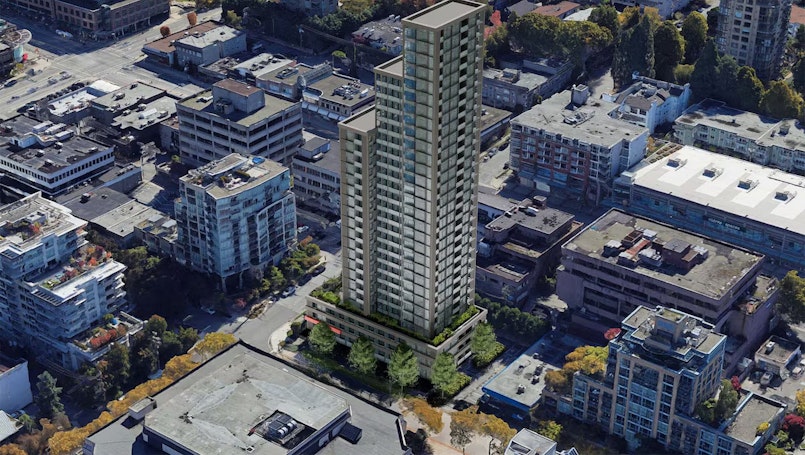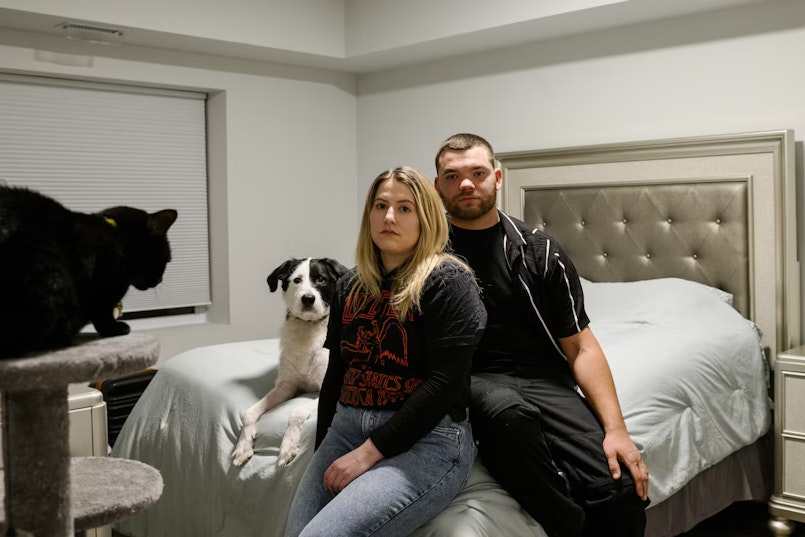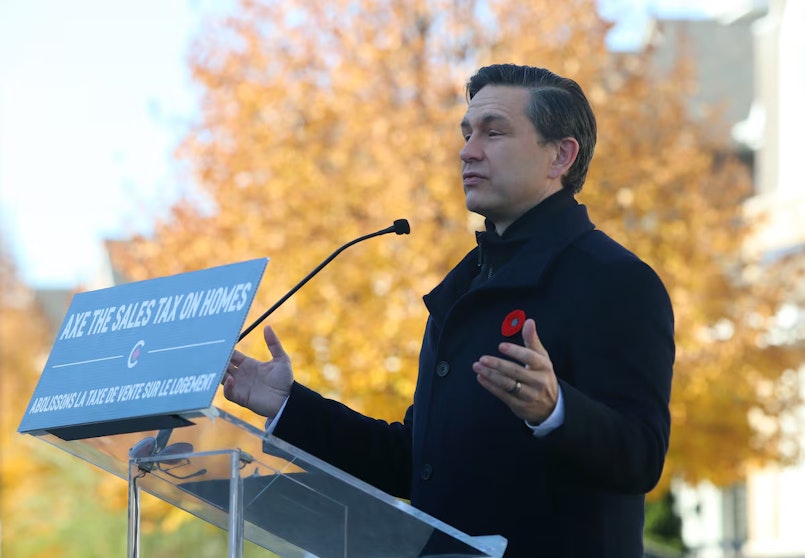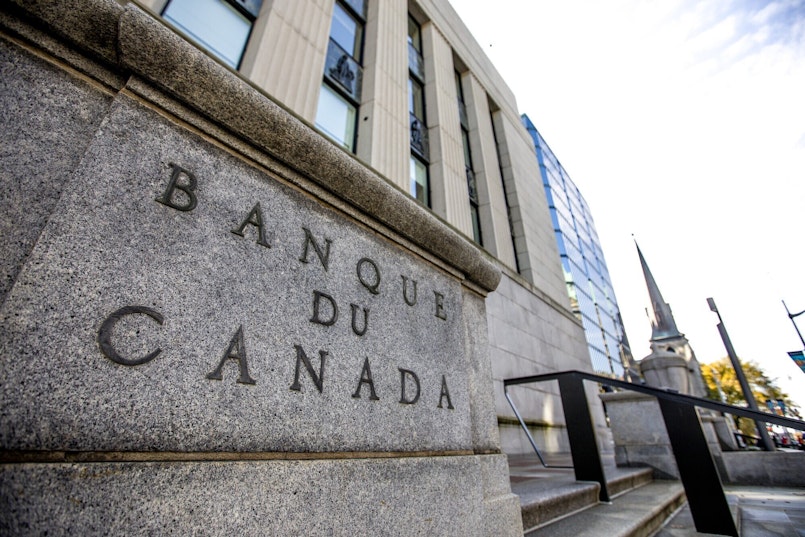The problem: Housing isn’t attainable in Toronto, but it should be.
The good news: Whoever our next mayor will be, it seems they agree.
That’s what we learned as Options for Homes co-hosted, along with 10 local organizations, a mayoral debate about housing issues at George Brown College on May 24 (watch it here if you missed it). On hand were the six leading candidates at the time, according to polling by Forum Research — namely: Olivia Chow, Mark Saunders, Josh Matlow, Mitzie Hunter, Ana Bailão and Brad Bradford.
Naturally, the candidates differ in their outlook on how to make housing easier for Torontonians to attain and afford. As a co-host of the event, and a non-profit, Options for Homes doesn’t endorse any candidate or policy — we’re neutral in matters of electoral politics.
But we did find it interesting to hear a lot of agreement — dare we say, even consensus — among the candidates on certain aspects of Toronto’s housing affordability challenge.
Here are four takes on local housing issues that resonate widely with the top candidates for Toronto’s mayor’s chair, based on their platforms and what they said at the debate:
1. The status quo on housing isn’t acceptable
From the debate’s questions and responses, it’s clear that no one really thinks the housing situation in Toronto is hunky dory. Meanwhile hope is fading for would-be homeowners: As panellist Greg Brady, host of AM640’s Toronto Today, noted, 76% of Canadians think owning a home is the best investment a person can make, but 63% of those who don’t already own a home have given up on any aspiration to buy one.
When it comes to the solutions, the candidates differ in terms of whom to help and how to help them: Chow is focused on providing renters with rent control and taxing vacant homes; Hunter wants to encourage more multiplex housing and more density on arterial roads; Saunders appears to be in favour of market-driven home building … and so on. Storeys has a good roundup of some of the leading candidates’ positions on housing.
Bailão said she’s glad to see housing on the agenda, at least — she remembers having trouble getting attention for the issue just a few years ago, when she was head of the Planning and Housing Committee at City Hall. “I'm just so happy that we're having a housing debate because when many of us here in this room were actually doing a lot of work to get housing [on the agenda], we couldn’t even get a headline in the newspaper,” she said.
2. Reducing bureaucracy will be essential to getting more housing built
Candidates across the board decried the maze of processes that builders and developers have to steer through in order to obtain a zoning bylaw amendment in Toronto. The result is a 30-plus-month wait on average, according to Bradford, who said change will be “about having all of the people around the table creating a culture of yes, and changing the mentality at City Hall rather than putting up roadblocks.”
Ideas for unblocking the path? Bailão and Saunders both said individual applications should have a designated “navigator” to guide them through the approvals process at City Hall. Matlow said he’d fast-track developments that bring additional community benefits, like a community centre or a school. Chow said she’d like to see city staff create an interactive map of building applications so residents can see what could be in the works for their area.
3. Toronto should unlock the potential of City-owned land
The City owns lots of real estate, everything from empty lots to office buildings. If we include Toronto Hydro assets, the portfolio was worth $27-billion as of 2019. And, thanks to activities like consolidating office functions into fewer locations, the City expects to be able to repurpose a good chunk of its real estate over the next decade.
Most candidates see this as an opportunity to build housing. Building on City-owned land is central to the affordable housing plans of every candidate except Saunders (who has simply noted that repurposing City land for housing has been official policy since 2019 anyway). For her part, Chow has promised to build 25,000 units on City-owned land, while Matlow’s plan would include a “revolving fund” to build housing that would then generate proceeds that would go toward building more housing, making the program financially self-sufficient. (Forgive us for pointing out that this is how our Ready Program model works at Options for Homes … )
Hunter stressed that whatever the plan for building new housing on City land might end up being, she believes “deeply affordable” units should be part of the mix, “because we have to make sure that this city continues to be a place that young people can live.”
4. Housing attainability solutions should involve a variety of dwelling types, models and partners
Nobody thinks there’s a one-size-fits-all solution to housing affordability in Toronto (although Hunter did note that some uniformity of design in public housing could help smooth the approval process). A myriad of building types and locations were mentioned as part of the solution, for example, from laneway houses to increasing density on arterial roads.
As for potential partners, several candidates said the City’s going to need to join forces with different kinds of players and organizations if it’s going to improve housing affordability in Toronto, including other levels of government and not-for-profits. Said Bailão, “We need to work more with our non-profits, [including] Options for Homes and Habitat for Humanity,” to address the housing needs of people of different incomes.
Bradford echoed this when he said, “We have a lot of incredible not-for-profits in the housing business and yet we make it so difficult for them to build housing. Maybe we should make it easier.”
While the decision as to who will lead this city is in the hands of Torontonians, we’re grateful to all of the candidates who took part in the debate for sharing their time and thoughts. We left feeling more hopeful that together we can achieve better housing attainability in this city. Now we wait to see who will become the city’s next Mayor on June 26.

